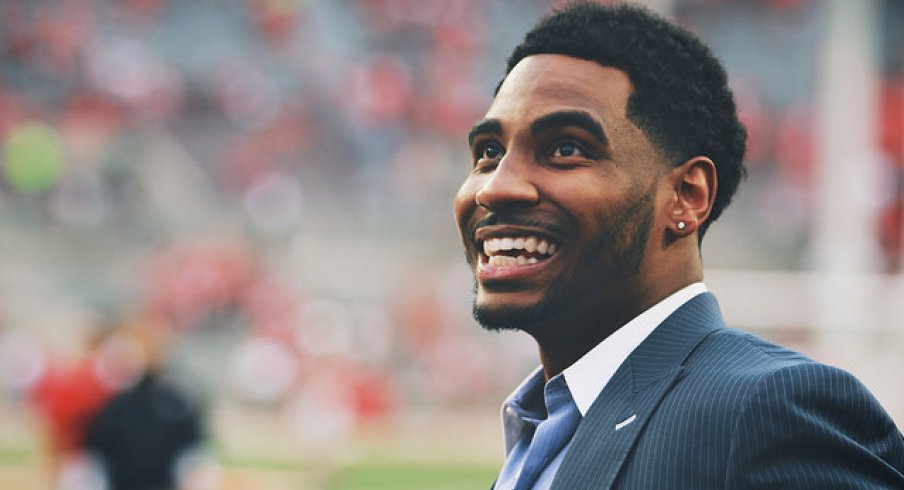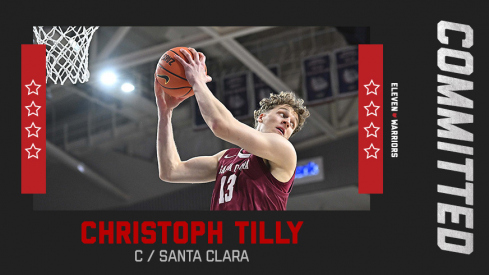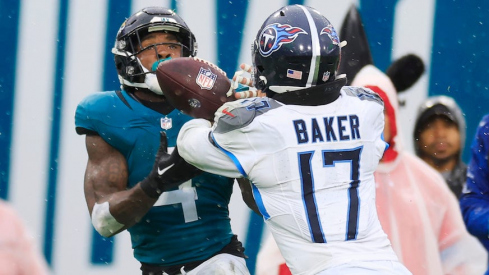I didn't have any idea what AdvoCare actually was until earlier this week.
I knew that there was some kind of bowl tie-in, but given that the San Diego County Credit Union also has a bowl sponsorship, as far as I know AdvoCare could've been anything from a multinational conglomerate that buys and sells small countries on a whim to a mom and pop outfit that buys and sells Saltine crackers for 98 cents on Fridays.
But given that our star quarterback (no, not that one. The other one. No, the other other one) has recently found himself in hot water by apparently slinging some of those hot hot AdvoCare products that the kids are so wild for, I figured that I should at least find out what the hell the company does.
At AdvoCare, We Build Champions® through physical and financial wellness. Backed by the latest science, AdvoCare provides innovative nutritional, weight-management, sports performance and skin care products. In addition, the AdvoCare business opportunity empowers individuals to explore their ultimate earning potential.
That's what AdvoCare says they do, anyway. The truth is probably closer to the supply company that your friend ended up selling crappy knives for during his sophomore year of college, because AdvoCare really makes it's hay by getting money from the sales of the people that they license to sell their products. They've been called out for shady business dealings in the past, and after a good thirty seconds of research, my favorite scandal they've been involved in by far is the time they were selling what was essentially a caffeine laden pre-workout mix to elementary school aged kids. That same pre-workout is now sold exclusively to adults, and on the website comes with a nice big "KEEP OUT OF REACH OF CHILDREN" warning.
Getting people to sell your product for you is a pretty lucrative business, and all in all, AdvoCare claimed a net profit of about 400 million bucks in 2013. That sounds like a lot if you're a sane human being, but psychotic tycoon types know that 400 mil is a drop in the bucket compared to the over ten billion that similarly structured companies like Avon and Amway brought in during that same time period.
That's the top of the food chain, however. Your average AdvoCare distributor actively looking to unload some protein powder can expect to make somewhere around $1600 per year, but Braxton Miller isn't your average anything. So while he didn't get in trouble for pushing stimulants on the Sesame Street crowd, using his likeness to sell said product would be a gigantic no-no in the eyes of the NCAA.
Braxton will probably be fine, by the way. As long as you keep your involvement on the relative down low, the NCAA doesn't seem like they'd care if you've decided to sell tainted baby formula to Rwandan orphans. Just make sure your name isn't on the carton and you're good to go.
The thing is though, Braxton is burning the candle on both ends. As a collegiate athlete and a father it's not super surprising that he'd take on two jobs, but it is a little odd that the one that asks him to take on the most responsibility is also the one that actively discourages him from making his own way outside of athletics.
Here's what the NCAA says they do:
The National Collegiate Athletic Association is a membership-driven organization dedicated to safeguarding the well-being of student-athletes and equipping them with the skills to succeed on the playing field, in the classroom and throughout life.
Well, with the exception of business skills, I guess. My girlfriend graduated through the Fisher College of Business, so I can ask, but I'm pretty sure that none of her classes taught them to cloak themselves in anonymity so they don't get an unfair advantage while selling stuff.
Which is weird, because the NCAA seems to be doing pretty okay for themselves financially. The almost a billion dollars in revenue that they can claim (most of it from March Madness) seems to indicate that they might be pretty savvy businessmen themselves. President Mark Emmert, for example, makes a cool $1.7 million for his efforts in actively preventing college kids from making similar amounts of money. COO Jim Isch makes just north of a mil, and several other NCAA officials make several hundreds thousands of dollars.
The other ways money is dangled in front of players is more than a little creepy, too. Today the Buckeyes got their championship rings, which could be described as being the jewelry version of a fat patrician from ancient Rome drizzling olive oil over his enormous gut and having purring baby cheetahs knead it into his skin.
Jiminy Crickets. You men and your jewelry and makeup. pic.twitter.com/JhYdzhzE5E
— Lori Schmidt (@LoriSchmidt) March 27, 2015
"Congrats kid! Here's a ludicrous hunk of fortune! Keep it forever and GOD HELP YOU IF YOU TRY AND SELL THIS THING FOR ANYTHING APPROACHING MARKET VALUE."
Braxton Miller, meanwhile, is a living, breathing advertisement for a sport that generates hundreds of millions of dollars in revenue every year. Yet, despite his stature among fans, as long as he's in college he's still like every other tadpole trying to shimmy up the lowest rung of a ladder that's about a thousand feet tall. Thanks to his insane athletic ability, he'll probably find a way to parlay that talent into playing football professionally and make millions of dollars. People who get mad at this article will point to that as proof positive that "athletes already get paid," because hey, they get a scholarship, a stipend, and the NFL awaits.
Less than two percent of everyone else will make it to that point, and in the meantime they all have to deal with the same restrictions on the fruits of their labor. Like those gigantic novelty rings, the results of their effort doesn't mean a whole lot as long as they're in college.
Yesterday I got a package from my apartment's front desk that had apparently been sitting there since November. After verifying that it wasn't life-saving medication or anything, I opened it up and got a super annoying promotion and pin from the Cotton Bowl, asking me to spend November 6th proclaiming how much I love college football. Even though that's literally all I do a good five to seven months out of the year.
Big time sports, even self-professed "amateur" sports, exist to self-perpetuate. Players like Braxton and the fans that support them are the commodity that is advertised and sold to keep the game going. And to be fair, it's an awesome game that we love to be a part of. Sports are fun as hell, and as fans we eat this kind of stuff right up. We get all of the fun and glory of the game with relatively minimal risk and time commitment.
But for Braxton, what does it say about how he sees his current situation when rather than strictly adhering to NCAA rules, he apparently threw his hat in with a company that's been accused of being a pyramid scheme? Maybe at a certain point it's understandable that a guy like him, who has a massive amount of personal risk and gives up a huge amount of his time to play a game, would like to start to be the seller rather than the sold.


